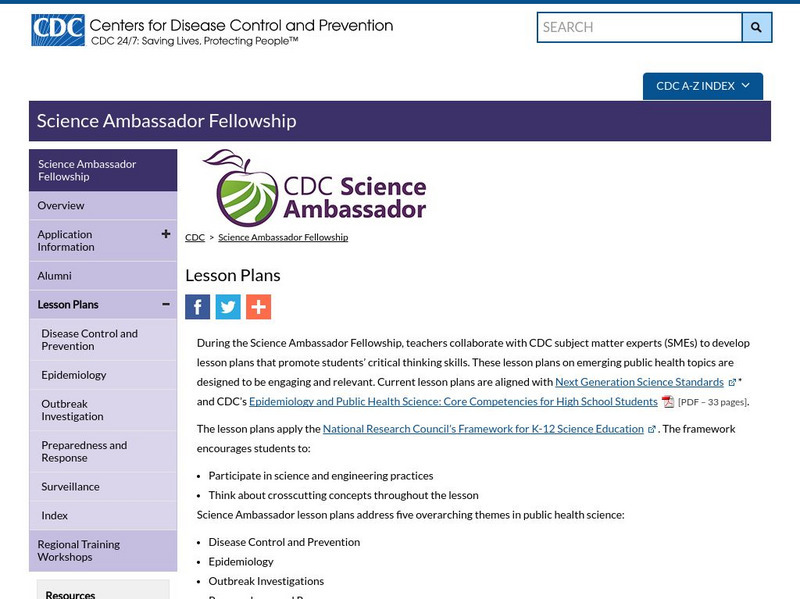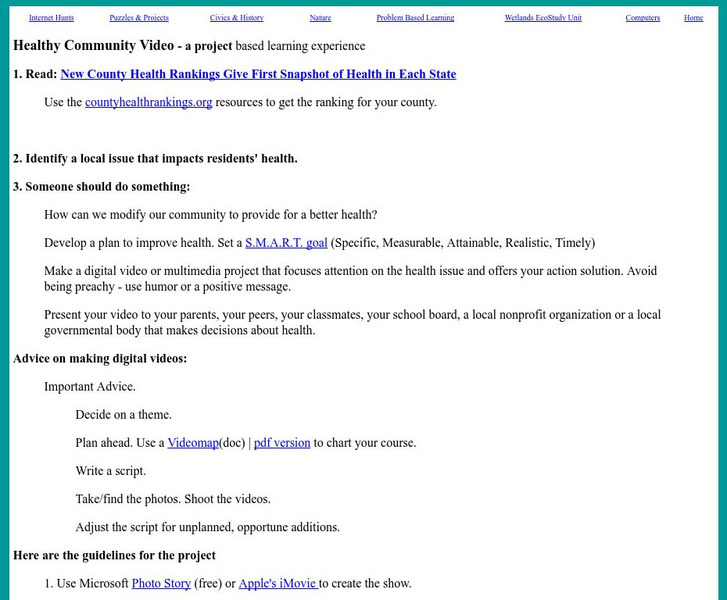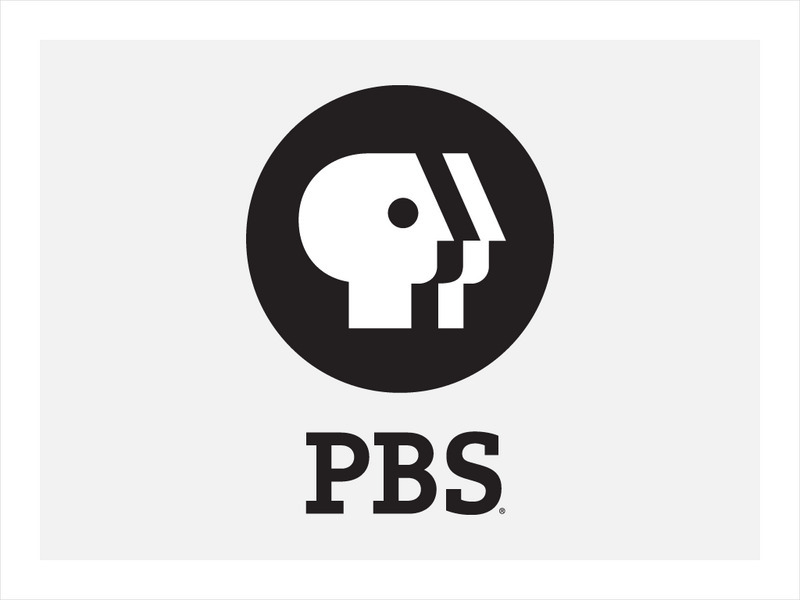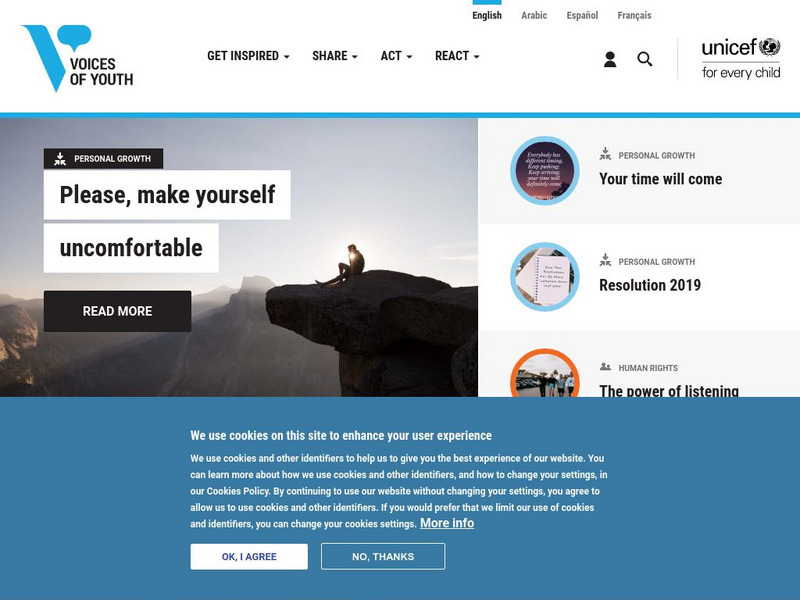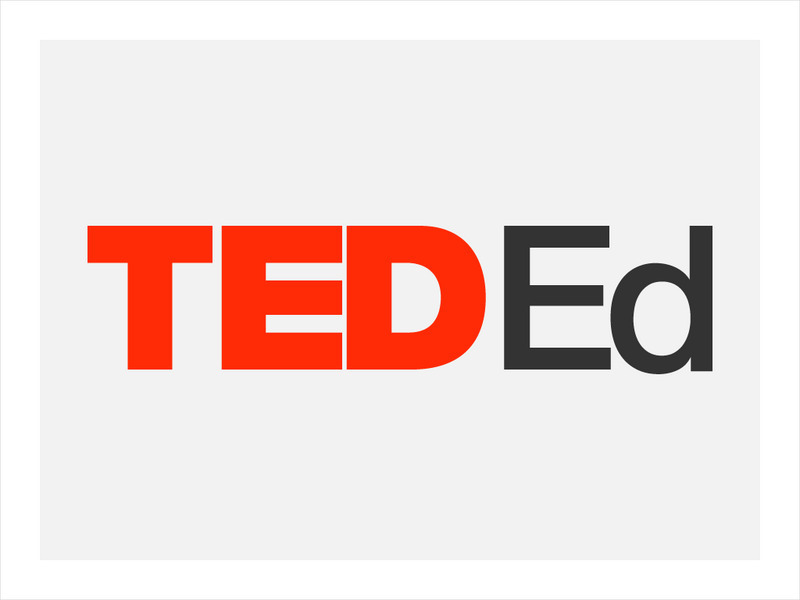Hi, what do you want to do?
PBS
Pbs Learning Media: Environmental Public Health: Natural Hazards
In this lesson plan, students are introduced to a variety of natural hazards and explore how understanding these threats make us better able to avoid or reduce their potential harmful impact.
TED Talks
Ted: Ted Ed: How One Scientist Averted a National Health Crisis
Andrea Tone explains how Frances Kelsey was able to prevent a massive national public health tragedy by privileging facts over opinions, and patience over shortcuts.
Centers for Disease Control and Prevention
Centers for Disease Control: Science Ambassador Fellowship: Lesson Plans
This site gives many lesson plans for teaching middle and high school students about current and relevant science topics like autism, ADHD, Diabetes, Fetal Alcohol Syndrome, birth defects, genetics, and more. The lessons are based on...
Cynthia J. O'Hora
Mrs. O's House: Health Community Project
Use these resources and create a project identifying an issue with the health of people in the community and working out actions that could be taken to reduce the problem.
PBS
Pbs News Hour Extra: Understanding Your Water: From Source to Tap and Back Again
For this lesson learners will learn about water treatment and what happens to water when it goes down a toilet and drains into sewers. Through further investigation students will understand the relationship between water treatment and...
PBS
Pbs Learning Media: Inside Opioid Addiction
Learn about the nationwide opioid crisis, its devastating impact on communities and families, and how agencies and individuals are pulling together to respond to this overwhelming public health crisis. Students write a final essay about...
PBS
Pbs Learning Media: Trade Secrets: Classroom Content: Lesson 1
Trade Secrets reveals how the public's right to know the truth about the thousands of chemicals that surround us has been compromised. This activity focuses on the processes of designing and interpreting results from health-related studies.
PBS
Pbs Learning Media: Point of View: Motherland: Lesson Plan: Family Planning
Engaging youth in discussions about family planning is difficult for a variety of reasons, not the least of which is the general discomfort adolescents have talking with adults about sex. Sometimes it can be easier to talk about...
PBS
Pbs: An Apology 65 Years Late
An article covering former President Clinton's apology to the survivors and family members of the Tuskegee Syphilis Study. Dated May 16, 2007.
University of Virginia
U of Virginia: Bad Blood: The Tuskegee Syphilis Study
Participants in the Tuskegee Syphilis Study were never told that they had syphilis. Instead, the doctors and scientists said they had "bad blood." Find out what took place during this study, and the social and political consequences...
PBS
Pbs Learning Media: Virus Information and Prevention
What are viruses and how do they spread? Find resources for students of all ages that explore the nature of viruses, how they are transmitted, and the healthy habits we can all engage in to prevent their spread. From the common cold to...
Other
Unicef: Voices of Youth
UNICEF's youth section provides information on how to help this famous non-profit with its mission, a forum, real-life stories from people in less-developed countries, educational games and "what do you think" questions, and materials to...
PBS
Pbs Learning Media: Trade Secrets: Classroom Content
Trade Secrets reveals how the public's right to know the truth about the thousands of chemicals that surround us has been compromised. The classroom resources offered here are designed to help you use this module, other material on the...
CPALMS
Cpalms: Browse and Search Resources
This site shares a collection of expert and peer-vetted teacher resources that are searchable for teachers and students. Searching can be achieved via a subject, grade, audience, and/or type. Curricula standards for the following subjets...
TED Talks
Ted: Ted Ed: Do We Really Need Pesticides?
Annually, we shower over 5 billion pounds of pesticides across the Earth to control insects, unwanted weeds, funguses, rodents, and bacteria that may threaten our food supply. But is it worth it, knowing what we do about the associated...
Utah STEM Foundation
Utah Stem Action Center: Air, Natural Resources, and You
Middle schoolers will analyze data from an air pollution study as well as facts about air pollution and use the data as evidence to infer the effect of using natural resources on the atmosphere and on public health.
TED Talks
Ted: Ted Ed: 3 Things I Learned While My Plane Crashed
Ric Elias had a front-row seat on Flight 1549, the plane that crash-landed in the Hudson River in New York in January 2009. What went through his mind as the doomed plane went down? At TED, he tells his story publicly for the first time....
TeachEngineering
Teach Engineering: Test and Treat Before You Drink
Students learn about water quality testing and basic water treatment processes and technology options. Biological, physical and chemical treatment processes are addressed, as well as physical and biological water quality testing,...







